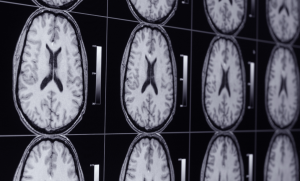 Headaches
Headaches, Depression, Nerve Damage, and Seizures… What They All Have in Common
In one study, 70% of gluten intolerant patients had social phobias. Depression was found in 52%. These are neurological manifestations of the disease, or are related to the disease, and they’re not the only ones either.
Italian researchers found that 22.5% of the patients with gluten intolerance had headaches, depression, epilepsy, & nerve entrapment syndromes such as carpal tunnel syndrome, and peripheral neuropathy.
The immune system was clearly involved in about 42% of the patients, as antibody reactivity to neural(nerve) antigens was detected. Interestingly, those who had antibodies to neural antigens did not necessarily have neurological problems. This indicates that these problems may take awhile to manifest.
Also noted was that if patients changed to a traditional gluten free diet, the follow-up lab work still revealed the same antibodies. In other words, only eliminating wheat, barley, and rye, didn’t change the immune system response in those with gluten sensitivity.
Source: J Neuroimmunol, March 2008, Vol. 195, No. 1-2, pg. 171-75. Epub March 17, 2008.
Gluten Free Society’s Stance
This research demonstrates yet again the universal effect gluten can have on the body. In this case, many patients developed neurological symptoms of
headache, depression, neuropathy, and
seizures, and
bipolar symptoms as a result of gluten sensitivity.
Of note is the fact that traditional gluten free diets focused on only eliminating wheat, barley, and rye did not resolve all of the patient’s problems. Additionally, the diet did not eliminate the presence of antibodies on follow up lab testing.
Remember that
gluten is a protein found in all grains. Many research studies are identifying other grains as a problem with those with gluten sensitivity. It is important to remember that substitute grains like millet, sorghum, rice, etc have not been adequately studied to be used as substitutes.
Many people with
gluten intolerance have symptoms that persist even after going wheat, barley, and rye free. This is largely due to the fact that they continue to consume:
- Highly processed foods with a strong potential for gluten cross contamination
- Other substitute grains that contain different types of gluten that continue to do damage to the bodies immune system
- Genetically modified versions of grains with the potential to confuse the immune system.
It is for these reasons that Gluten Free Society recommends eliminating all grain.
 Headaches, Depression, Nerve Damage, and Seizures… What They All Have in Common
Headaches, Depression, Nerve Damage, and Seizures… What They All Have in Common
8 Responses
Please give more information about evidence of gluten found in ALL grains. Thank you.
great post as usual!
Lisa,
Watch video tutorial #1. Also check the search engine on the site for corn and gluten.
All the best,
GFS Staff
Just want to say what a great blog you got here!
I’ve been around for quite a lot of time, but finally decided to show my appreciation of your work!
Thumbs up, and keep it going!
Cheers
Christian,
My name is Jayne Aston AKA Aunt Jayne and I was diagnosed with Celiac Disease in July, 2007.
My symptoms were not typical. Oh sure, I had the usual stuff like chronic diarrhea and bloating (which were mis-diagnosed as Irritable Bowel Syndrome), and mood swings. (They treated me for Bi-polar disorder) I also had the really annoying itchy, burning rash thing on the back of my head and occasionally on my elbows and knees. (I was treated for Eczema and Psoriasis) Migraines and dizziness (diagnosed as Labrynthitis) also plagued my day to day life.
The big one, the one that signalled a real problem was the sudden periods of disorientation, when I didn’t recognise my surroundings or people I actually knew!! (Can you imagine how scary that was?? – I thought I was losing my mind or had a brain tumour or something)
Within weeks of starting my gluten free diet, my symptoms were gone!
Coincidence? I think not.